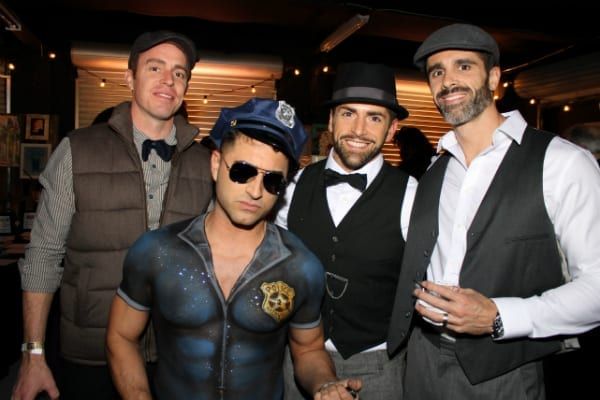In a perfect world, drama belongs on stage, not in your daily life. Don't you agree? Think about it: do you ever find yourself overly reactive, theatrical or
What is your drama doing for you? Where is it taking you? And this isn't just for so-called "hysterical" over-the-top emotion. It's time for that stereotype to die. "Macho" men (and women) do drama too, only they play it out in slightly different ways, e.g., "egomaniac," "power-hungry" or "king of the mountain." Whether it's more "Streetcar Named Desire" or Donald Trump, drama is drama, and it's not good for your mental health.
There is nothing wrong with living large if that's truly who you are. When I lived in Paris, I noticed that Parisian women often wore large, attention-getting jewelry...and did so quietly and elegantly. They walked softly and carried a big bracelet. Being real doesn't mean being mousy and boring, it does mean being true to yourself...and when you're true to yourself, the drama quotient in your life inevitably goes down. Why? Drama is a cry for help: Help! No one loves me! Help! No one cares! Help! No one thinks I'm hot! Someone pay attention to me, please!
If you're a fabulous drag queen, then drama and hyperbole are to be expected. If you're a "regular" LGBT person living your life and feeling unloved, unappreciated or disconnected, then perhaps you've lost sight of who you are and are focusing too much on your "image". I wish that a buff body, great hair and beautiful clothes would bring happiness. If that was so, we could all be happy all the time, once we found the right trainer, haircutter and wardrobe. Unfortunately, it doesn't work this way.
Drama is not the voice of your best friend, it is the voice of your deepest fears...the ones that plagued you as a child but no longer need to dominate your adulthood. Most of us, as we enter our late 20s or early 30s, start to leave drama behind. The insecurity that gives birth to drama thankfully diminishes as we age. We gain a sense of who we really are, as opposed to who we have been told we should be. Finding out who we really are is no small task; it goes on our whole lives. Many people in their 70's and 80's are still discovering new and surprising aspects of themselves...and feel more alive than they ever did in their 20s.
This kind of neurotic self-talk encourages drama...and lots of it. There's an ad out for a moisturizer whose copy reads, "I'm 40, but I look 10 years' younger." This is the kind of fear that makes us afraid to be ourselves and pushes us toward the drama of panic and insecurity. Is it really a surprise that so many LGBT people today have panic attacks? Never before has the pressure been so intense for us to try to become someone we're not...someone who looks younger, seems happier, has more money than we really do. Ugh.
The antidote to: "No one loves me! No one cares! No one thinks I'm hot!" isn't panic, anxiety or drama. The way to feel loved, connected and attractive is to find it inside yourself. Drama doesn't like a quiet self-confidence. It hates a genuine sense of humility and gratitude. Focus your energy on developing these qualities and watch your confidence grow and your drama fade away. And don't be surprised how easily it may happen: you simply won't need it anymore.
Michael Kimmel is a psychotherapist in San Diego, Calif. His website Life Beyond Therapy assists individuals and couples in their continued growth and development.
